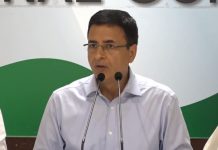
Called as Operation 136, named because that’s the number at which India figures in the World Press Freedom Index, the Operation was conducted over an extended period of a few months without raising any suspicion among those who were stung. Of course one of the top media houses subsequently claimed that it was trying to “counter sting” the alleged representative of a fictitious religious organisation called Shrimad Bhagwad Gita Prachar Samiti. The alibi was not just lame but also laughable as it came after the Cobrapost.com had released all the evidence it had gathered.
All the others caught in the sting operations maintained a deafening silence and have still neither denied nor confirmed that they were fooled into negotiating contracts to spread a particular ideology or to run down specific political leaders.
While sting operations are generally looked down upon as surreptitious journalism in which “immoral and unethical” methods are used to ensnare the unsuspecting victims, there are times when it is difficult to pin down the culprits through conventional investigations. It is obvious that persons or entities dealing in suspicious activities would attempt to leave as little footprints as possible and that it becomes virtually impossible to pin them down or establish the wrongdoings.
This was perhaps one of those instances where it would not have been possible to wash the dirty linen from media houses with conventional investigations. Cobrapost.com, headed by
well-known journalist Aniruddha Bahal, who has specialised in organising and conducting sting operations, deployed a senior journalist Pushp Sharma, who posed as the frontman of an organisation seeking to spread Hindutva and make fun of some political opponents. And, all this, of course, for a hefty fee ranging from a few crores to Rs 500 crore.
The bait was enough to attract top media houses and their representatives who fell for the money promised. Some of them even going to the extent of accepting cash routed through front companies. Over two dozen media houses, both mainstream and regional, across the country accepted the bait and there were only two honourable exceptions — Bartaman Patrika and the Dainik Sambad.
A press release from the website said the operation “shows Indian media’s underbelly in its most visceral form, where even the “big daddies” do not mind agreeing to undertake a campaign that has the potential to not only cause communal disharmony among citizens but also tilt the electoral outcome in favour of a particular party. This they will do if they are paid the right price….”.
Even as the undercover journalist approached these media houses with his preposterous proposal, “Cobrapost saw them all crumble under the weight of a “big business opportunity” that was knocking on their doors without asking. Almost all bent themselves backward to grab this opportunity”.
The website claimed that the media houses “agreed to promote Hindutva in the garb of spiritualism and religious discourse. They agreed to publish content with the potential to polarise the electorate along communal lines. They concurred to besmirch or thrash political rivals of the party in power by posting or publishing defamatory content about them. Many of them were ready to accept unaccounted cash, in other words, for the job to be assigned to them” and in the process gave a go bye to the principle of neutrality. Worse they offered to compromise on all moral principles and didn’t bother if their actions could lead to cheating and misguiding their readers or listeners.
The investigation by the website led to quite a buzz in the media world. While journalists discussed the sting operation and how it has exposed some of the media houses, the organisations concerned remained tight-lipped and declined to be drawn into any discussion. The conclusion was obvious that they or their senior management had taken the bait. Only one media house approached the courts against the claims of Cobrapost and obtained a stay on the publication of any material which referred to the Group. Most journalists’ organisations also preferred to maintain silence on the issue.
It was after a week or so that the Editors Guild of India expressed concern over Cobrapost’s sting and urged media organisations to explain their position to the people. The Guild also said that the media was under attack from different quarters in an environment that required journalists to be “extraordinarily vigilant and conscious of the need to adhere to the highest standards of free and fair journalism”.
The Guild said, “Editorial freedoms must be fully respected. Paid news, even a suggestion of it, is ruinous for the media’s image.”
The Guild, which is currently headed by former Editor-in-Chief of The Indian Express and founder of theprint.in, Shekhar Gupta said that while it cannot ascertain the veracity of the tapes, it urged media organisations, whose representatives were purportedly caught engaged in inappropriate conversations, “to explain their conduct to their readers and the public at large….. They must squarely address the charge that some media organisations seem inclined to sell editorial content for revenue.”
While the Guild said there can be no compromise on maintaining the wall between editorial and advertising and that all sponsored and advertorial content must be clearly identified and demarcated,” the media houses concerned made no move to come clean on the issue.
Yet to assume that the Cobrapost sting has ‘nailed’ the India media or that it is the norm would be a big fallacy. There may be a few black sheep, whose so-called “wrongdoings” did not even materialise, but there are most others trying to do an honest job and who do not succumb to such crumbs.
It is also a pertinent point that of the top media houses were open for sale, they would have been purchased much earlier by the tycoons who have enough money power to easily purchase all the media houses.
Surely questions can be raised over the method used to sting the top management of some of the media houses. This sting operation was quite unlike the other major investigations done by international organisations like Wikileaks and Cambridge Analytica, where illegal actions already completed, had been exposed.
Nevertheless, the Cobrapost sting has exposed the soft underbelly of these organisations and lessons needed to be learnt. The investigation has led to several questions. One wishes that the operation should have also involved confronting the organisations concerned and getting their responses.
Although the credibility of a section of media is already low, the sting operation is no reflection on the working of the entire media in the country. It is too soon to write the obituary of media in the country which has been taking stands as and when required and remains essential for the success of democracy as a watchdog rather than a lap dog.
One major saving grace from the operation was that none of those who fell to the sting were professional journalists. Not that all journalists are above board but one must not lose faith in the fourth pillar of democracy.
letters@tehelka.com












